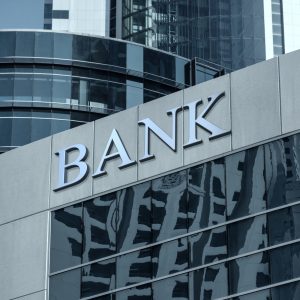
Can a legal, licensed crypto exchange be unregulated at the same time? While that might sound counter-intuitive, cryptocurrency exchanges that expand to overseas markets are finding themselves in this strange situation. They have legal, licensed status in their native home country, but are in legal purgatory in the new markets they expand into. Mike Kayamori, CEO of Quoinex, the first Japanese licensed crypto exchange with a global presence, sits down with Marcel from news.Bitcoin.com to talk more on being a licensed exchange from Japan in uncharted legal waters in Singapore.
Also read: PNC Bank Threatens to Close Customer’s Account for Buying Bitcoin

Marcel: Tell me more about the differences in Bitcoin’s regulatory framework in terms of Japan v Singapore. Quoinex has a license to operate an exchange according to the Japanese Financial Services Agency, but recently ran into issues with the CIMB bank in Singapore.
Japan has a regulation framework, Singapore has a zero tolerance policy.
Mike: We are a global exchange. We started in Singapore. Relocated to Japan last March due to advice from the Japanese FSA. This was because 80% of our trading volume was in Japanese Yen.
It took us 18 months to get licenced and registered in Japan. There, we have 6 or 7 banks that provide banking services for us. Regulation is clear. If you are a regulated exchange you offer your services to Japanese residents. It’s not clear in Singapore. There’s no bill, even though something will be announced by the end of the year. Then, that needs to pass and legislation will take 3 more months.
Until these details are out there, banks will not take you seriously. The most difficult thing for exchanges is when the regulation is grey. Then it’s up to the banks to decide if the banks want to extend banking services or not. In Singapore it’s zero tolerance. People might do fiat transfers to your exchange through a payments aggregator, payments partner, or subsidiary. However, once an exchange builds a noticeable trading volume, banks will shut the exchange down. They even shut down our individual customers’ DBS bank accounts. If banks know you are involved in crypto, they will shut you down.

Only after regulation will banks work with you. That’s the curse of a non regulated environment.
Marcel: Are Singaporean users still able to buy and sell crypto using SGD? Or do you have to route customers payments to Japan?
Mike: They have to wire to Japan.
Marcel: Banks will flag you if it’s over 50k SGD right?
Mike: That depends on the bank and also the intermediary bank handling the funds. For the receiving bank in Japan, there is no limit. You can wire a million dollars, 2 million dollars, 5 million. But your own bank in Singapore might say no. They’ll ask, ‘What are you going to buy with this? What’s the purpose? What is the source of funds?’ The intermediary bank might ask you as well. Fiat is always a challenge.
When everything can be bought or sold in cryptocurrency then we won’t need fiat anymore, but that’s a long way off.
Marcel: Do you think that Japan will regulate the second generation cryptos as well as ICOs?
Mike: They have already regulated all of it. They regulate exchanges, and these exchanges tell the FSA which tokens they offer. When you want to offer a new ERC20 token or any other coin, you need to submit an application to the FSA saying what you want to list. Only if they accept it can the exchange offer it.
Marcel: What do you think are the differences in attitude between crypto investors around the world? Are the Singaporeans more conservative when it comes to embracing crypto?
Mike: It’s more Japan and non Japan. Japan has a fascination with Bitcoin. In Korea, Ethereum and other altcoins have bigger volume than Bitcoin. In Japan it’s 9 to 1, Bitcoin, Bitcoin, Bitcoin then maybe Ethereum or Monacoin. Singaporeans and overseas Chinese guys are more aggressive when it comes to investing.
What do you think of the legal challenges crypto exchanges face? Should they wait for clear regulation before entering a new market?
Images courtesy of: Shutterstock and LinkedIn.
Bitcoinocracy is a free and decentralized way to measure the Bitcoin community’s stance on a given proposition. Check vote.Bitcoin.com.
